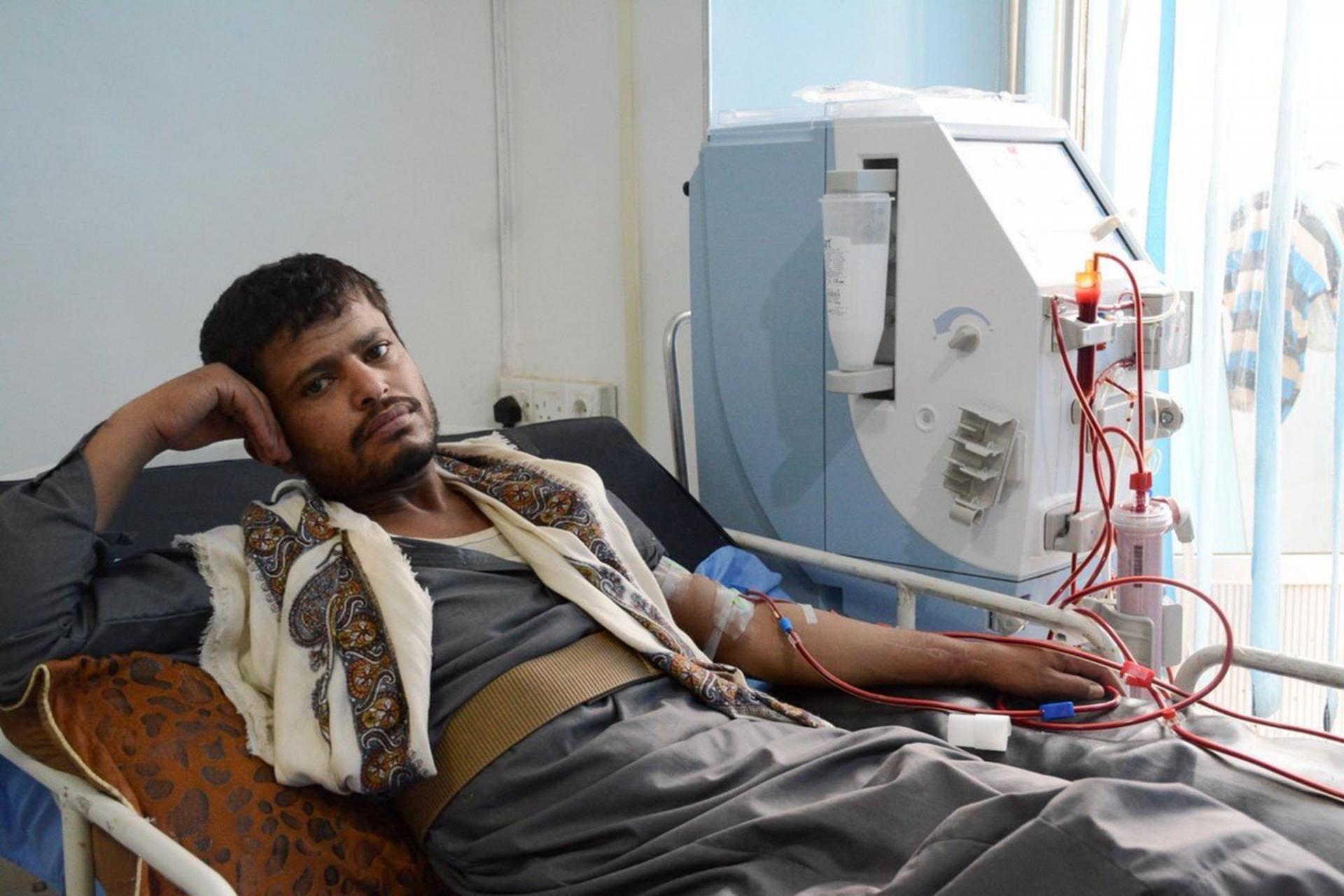For the past 12 days MSF has not received authorization from the Saudi-led Coalition to fly from Djibouti - Sana’a. This has significantly hindered the organisation’s ability to provide life-saving medical and humanitarian assistance to a population already in dire need.
On 15 November, MSF’s usual scheduled weekly flight to Aden was authorized, and MSF’s plane was able to make one return flight between Djibouti and Aden. The authorization was a welcome step, and will help us to continue providing assistance in our projects in Aden, Taiz and nearby governorates. However Aden airport is far from sufficient for MSF to be able to deliver timely and urgent medical humanitarian aid across Yemen.
Aden is also highly insecure and geographically far from some of the areas in most need of humanitarian assistance. The overall impact of the continuing blockade of other ports and airports increases the strain on the population by the day, at a time when the majority of Yemenis are already struggling with massive increases in food, water and fuel costs, as well as access to medical care.
MSF continues to request authorization for flights to Sana’a, which together with other areas of the north are among the places most affected by the blockade. Access for humanitarian flights into Yemen through Sana’a airport is essential for MSF’s medical and humanitarian operations, as well as for other organizations working to support the Yemeni population.”
Testimonies of patients at Al-jumhoury hospital in Sana'a, an MSF-supported hospital
“I suffer from Acute Coronary Syndrome. I have faced difficulties in finding transportation to the hospital as the fuel prices have increased a lot. A charitable person provided a taxi for me and paid the cost for transportation.”
– Nasser Ali, 80 years old
“My nine-year-old son Morad Naji is suffering from an acute chest infection. We live in Alahjor, Sana’a governorate. We faced difficulty in transportation and paid 9,000 YR for less than two hours’ drive. We took him to a health center in Shamlan, then to Al Kuwait hospital. After that, I carried him on my shoulders to Al-Jumhoury Hospital.”
– Raeesah, 37-year-old mother of Morad
“I live in Amran governorate and have been doing dialysis sessions for two years. I used to pay 6,000 YR for transportation for four or five hours drive. The recent blockade adds insult to injury and now charitable people pay the cost of my transportation. During the last two months, I have not been doing five dialysis sessions because I couldn’t afford the transportation costs.”
– Khaled Tawaf, 50 years old
“I have been doing dialysis sessions for 15 years and 8 months. During the recent blockade, I have walked for 35 minutes three times a week from my house to Bab Al Yemen, and then taken a taxi to Al-Jumhoury hospital for 1,500 YR, which in the past would have only cost 750 YR. Sometimes I have to walk to the hospital for more than two hours so I don’t miss the dialysis. Besides renal failure, I also suffer from valve heart disease, hepatitis and osteoporosis.”
–Saleem, 30 years old, from Sana’a
Find out more about MSF's work in Yemen.
